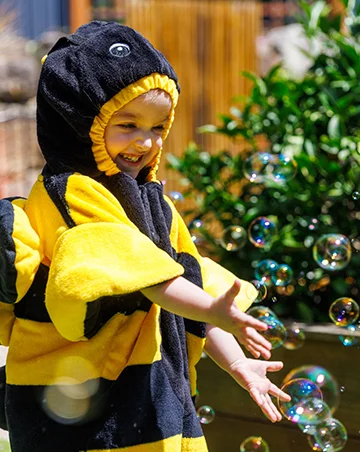
At Little Scholars, our core responsibility is to ensure the safety and wellbeing of every child in our care. We are committed to creating environments where all children can feel and be safe. Our approach is comprehensive, aimed at safeguarding children from any form of abuse, neglect, or harm.
Ensuring the safety of a child is a responsibility of all our campus staff – educators, chefs, leadership team – everyone.
Child Safeguarding and Media Consent
At Little Scholars, we uphold the highest standards of safety and privacy for all our little ones. In line with our commitment to safeguarding every child’s wellbeing, we ensure that no images or videos of children are used on our social media platforms, online, or in marketing materials without explicit consent. We obtain this consent through a specific agreement signed by parents or legal guardians, ensuring transparency and adherence to privacy laws. Our priority is the safety and security of our children, providing peace of mind for our families while respecting their privacy choices.
National Principles for Child Safe Organisations
As a child-safe organisation, we are committed to Australia’s national principles for children’s safety and wellbeing. Drawn from the work of the Royal Commission, Australia’s Children’s Commissioners and Guardians and the 2005 National Framework for Creating Safe Environments for Children, the National Principles are underpinned by a child-rights approach to build capacity and to deliver child safety and wellbeing in organisations, families and communities.
To fortify this commitment, we have our stringent Child Protection Policy and procedures. These policies, procedures and guidelines are designed to address the safety and wellbeing of every child and young person in our care.
We have vigorous recruitment and screening procedures. Our staff and volunteers must have up-to-date Working With Children Checks (Blue card), staff undergo comprehensive background checks, including criminal history and reference checks to be a Little Scholars employee. Little Scholars hosts ongoing education and training for all staff in our campuses, on child safeguarding, recognising signs of abuse and appropriate reporting procedures.
Little Scholars has adopted the National Model Code and Guidelines, created in response to the 16 recommendations of the Australian Children’s Education and Care Quality Authority (ACECQA) Review of Child Safety Arrangements under the National Quality Framework. For example, only Little Scholars-issued devices can be used when photographing and filming children.
The Code and Guidelines also outline the strict controls that must be in place for taking, sharing and storing images or videos. No child’s likeness is shared anywhere without signed permission from parents or guardians.
Compliance with our codes of conduct is mandatory for everyone involved with Little Scholars — employees, students, volunteers, visitors, families, and authorised contacts. Failure to comply is not an option and is a condition for participation in our services.
We have a moral and legal obligation to report suspicions, disclosure and/or witnessing of harm of children. Little Scholars has clear reporting protocols for all staff to report any concerns about children in our care, including physical, emotional, and sexual abuse, and neglect, regardless of who is responsible and where the harm occurred. We have a duty of care to report harm that occurs within the service as well as outside.
If a child comes to us and discloses abuse, the role of educators is to listen, reassure and respect that child and what they’re telling us, but also make it clear to the child we will have to share their experience for their own protection.
If you have any concerns about a child’s safety, health, or wellbeing at any Little Scholars campus, we urge you to report it. You can speak directly to the Campus Manager or contact Melanie, operations manager for Little Scholars. While you have the option to remain anonymous, providing contact details will enable us to gather more information and respond more effectively.
Any concerns raised will be directed to the appropriate parties, including regulatory authorities or law enforcement agencies, in line with legislative requirements.
We also believe in empowering children about their rights to prioritise their own well-being and safety, explaining in age-appropriate language. Bravehearts is a not-for-profit organisation that uses its voice to protect children from sexual harm. Bravehearts’ Ditto’s Keep Safe Adventure Program visits our campuses each year to provide children with effective personal safety education. The program is curriculum-aligned with the Early Years Learning Framework.
Our learning experiences across our studios and across our campuses support children’s agency and early intervention. These experiences can and do include:
Bravehearts also offers great information for families on teaching children about their personal safety and body autonomy. It has a huge array of resources for parents and educators on child abuse and protection.
Body Safety Australia promotes childhoods free from violence where children enjoy equitable and respectful relationships. Its program is designed to empower and educate children to understand and communicate their right to bodily autonomy, and equip communities to prevent child abuse.
Kids Helpline: telephone 1800 551 800
NAPCAN: Offers information, programs and resources for the prevention of child abuse and neglect.
SAFE4KIDS specialises in child protection education, which is also known as child abuse prevention education, protective behaviours, and body safety. Its website has a host of resources including a board game that can be used as an assessment tool to evaluate children’s ability to conceptualise the principles of protective behaviours.
The Daniel Morcombe Foundation provides person child safety education to children and young people to prevent abuse and promote lifelong wellbeing. The foundation offers keeping children safe resources for Prep/Kindy right through to Year 12
ChildSafe Body Safety Education and Resources
Roar Australia – KidsRoar – Delivers engaging protective behaviours programs that focus on ‘Personal Safety 4 Kids.’
The Australian Centre to Counter Child Exploitation (ACCCE) website was created by the Australian Federal Police (AFP) to bring together a world-leading approach to counter child exploitation. They have some great resources for families and carers here.
The National eSafety Commissioner has information for parents and carers on maintaining children under 5’s safety online here.
Here are some resources, both books and digital, to help children learn about their own autonomy and to help protect themselves from any potential harm.
Boss of my own body – Teeny Tiny Stevies
Protect Yourself Rules by Barbara Sinatra Foundation offers age-appropriate cartoons on YouTube
I can use my voice – Unsafe Secrets Song by Livvi Music Media
Project Ari – A podcast for children 8-10 (produced by Nova Entertainment and the Dept of Social Services) about 10-year-old Ari, who’s the world’s first artificial intelligence prototype, as he tries to wrap his ‘data brain’ around the human experience. This series is funny and silly, with plenty of heart, and has been designed as a tool to help start meaningful conversations with children about respectful behaviour.
Everyone’s Got a Bottom Gold Coast Libraries
Authored by Tess Rowley and illustrated by Jodi Edwards, this book is aimed at ages 3 to 8 and shares the story of Ben, along with his brother and sister, learning about their bodies and being safe. For anyone looking for ways to gently begin that conversation about personal safety, we highly recommend this book. The book includes incredibly important information for parents and caregivers inside the back cover.
Some Secrets Should Never Be Kept Gold Coast Libraries
One of the key issues we grapple with in personal safety is the issue of secrecy. This book (recommended for ages 3 to12), written by Jayneen Sanders and illustrated by Craig Smith, provides a gentle avenue for children to learn about their rights to speak out and be safe. It also includes a guide to help parents and caregivers discuss the book with their children.
ABC of Body Safety and Consent Gold Coast Libraries
Written by Jayneen Sanders, this book also looks at the critical issue of consent, but for the younger audience (ages 4 to10), along with important personal safety messages of body ownership, boundaries, respect, safe and unsafe touches, warning signs, and secrets.
My Underpants Rule Gold Coast Libraries
Illustrated and created by Rod and Kate Power, this book for children aged 3 to 8 helps to empower children to understand “What’s under my pants belongs ONLY to ME!” Bright, lively, fun and engaging, it gently and effectively teaches children their ‘Underpants RULE!’
How to say hello Gold Coast Libraries
Written by Sophie Beer, this book helps children understand different ways they can say hello to loved ones, that they can say hello without physical contact
Don’t Hug Doug (he doesn’t like it) Gold Coast Libraries
Written by Carrie Finison, this is another great book to teach children about body autonomy and consent.
Educate2Empower Publishing is an international award-winning niche children’s book publisher that specialises in children’s books on body safety, consent, gender equality, respectful relationships, and social and emotional intelligence. Educate2Empower Publishing provides free resources for parents, caregivers and educators on these important topics.
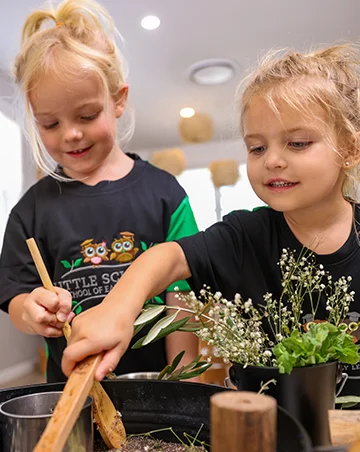
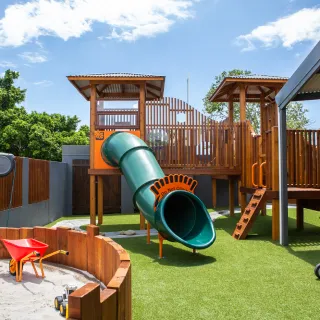
We adore the endless stream of questions that little ones bring to us every day! From an early education standpoint, we want children to learn at every opportunity. Children are inquisitive beings, and they have lots to learn! At Little Scholars, we cherish this innate curiosity in children and strive to foster a lifelong passion for learning.
As parents and educators, we understand that some questions from our little ones can catch us off guard, leaving us searching for the right words to provide age-appropriate answers. We’re here to lend a helping hand, so let’s tackle a few of these tough questions together!
“Everything about Little Scholars is about the children. It’s amazing to be surrounded by passionate educators that love making a difference for the children.”
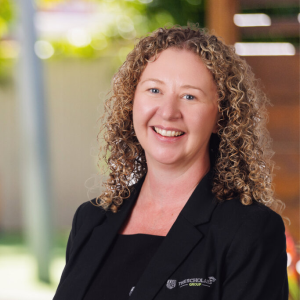
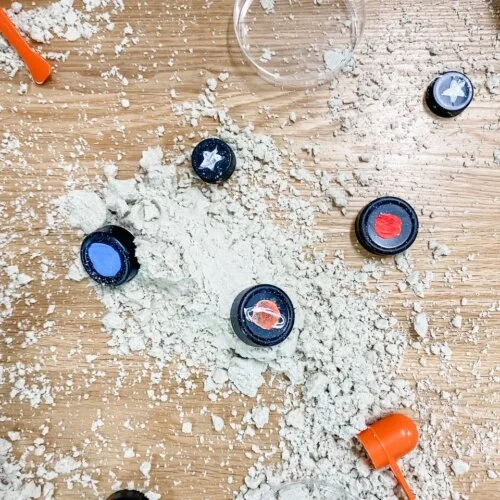
We know it can be hard to come up with easy, quick things to do with your children, so we thought we’d share a favourite of our little scholars. Learn how to make your own moon sand in minutes with a few of these kitchen staples!
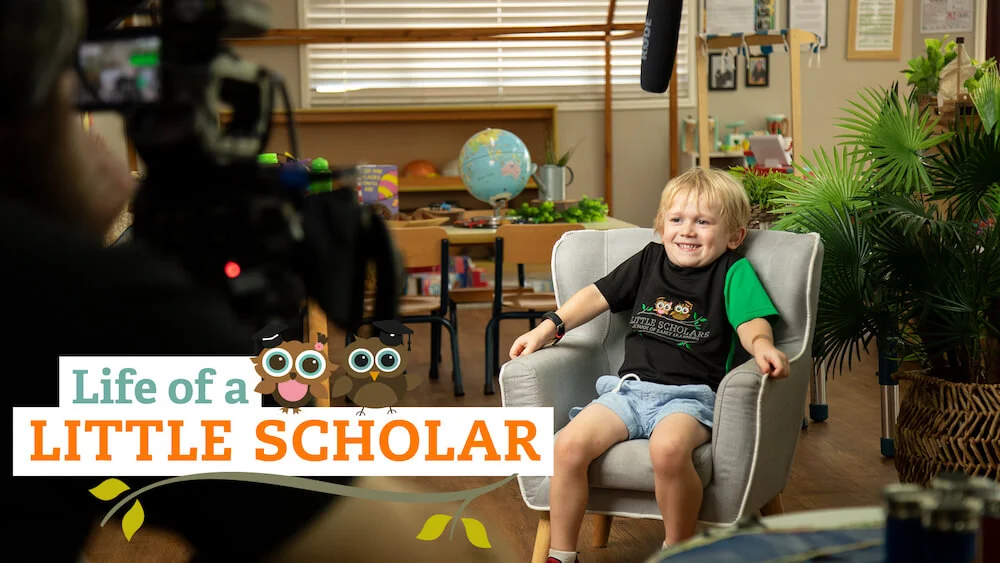
We sat down with our little scholars and asked them some very important questions.
At Little Scholars School of Early Learning, we’re dedicated to shaping bright futures and instilling a lifelong passion for learning. With our strategically located childcare centres in Brisbane and the Gold Coast, we provide tailored educational experiences designed to foster your child’s holistic development.
Let us hold your hand and help looking for a child care centre. Leave your details with us and we’ll be in contact to arrange a time for a ‘Campus Tour’ and we will answer any questions you might have!
"*" indicates required fields